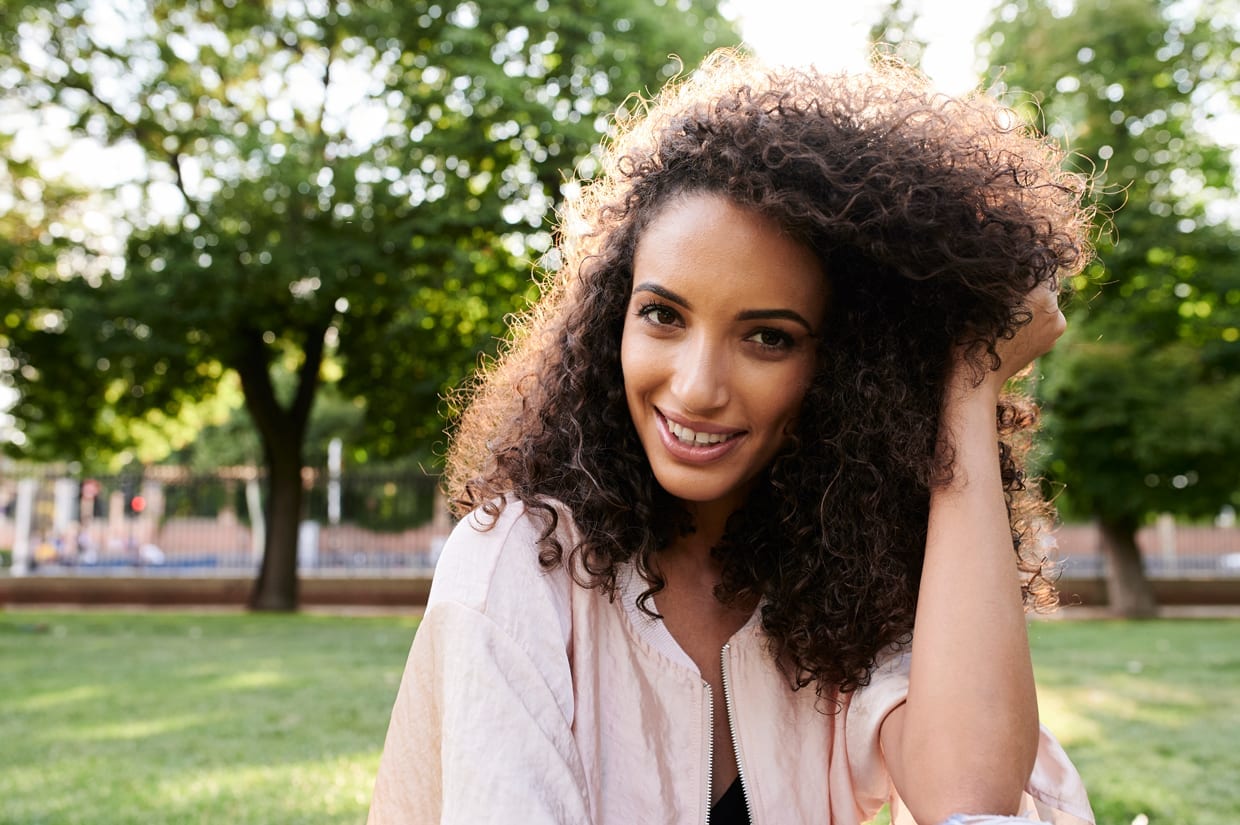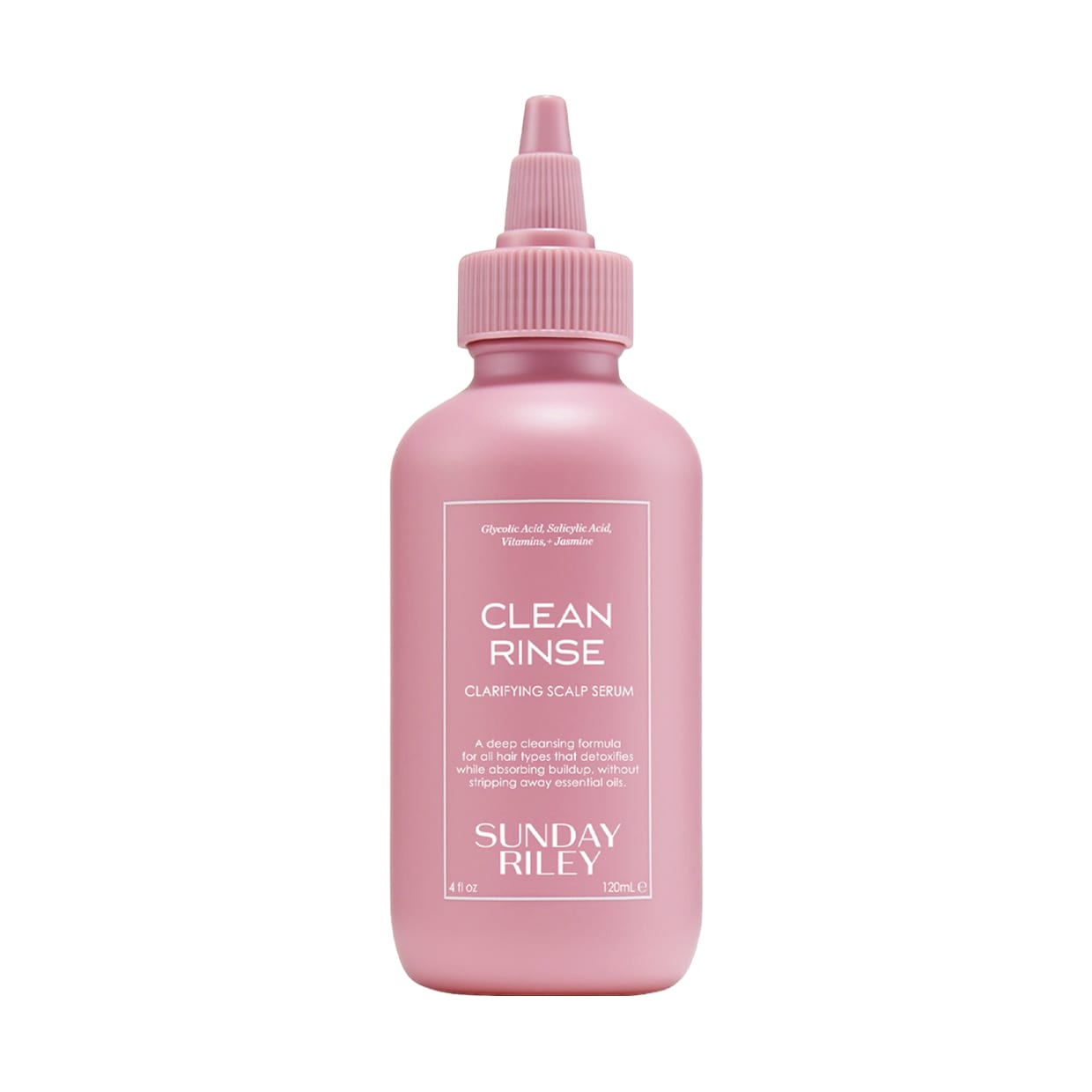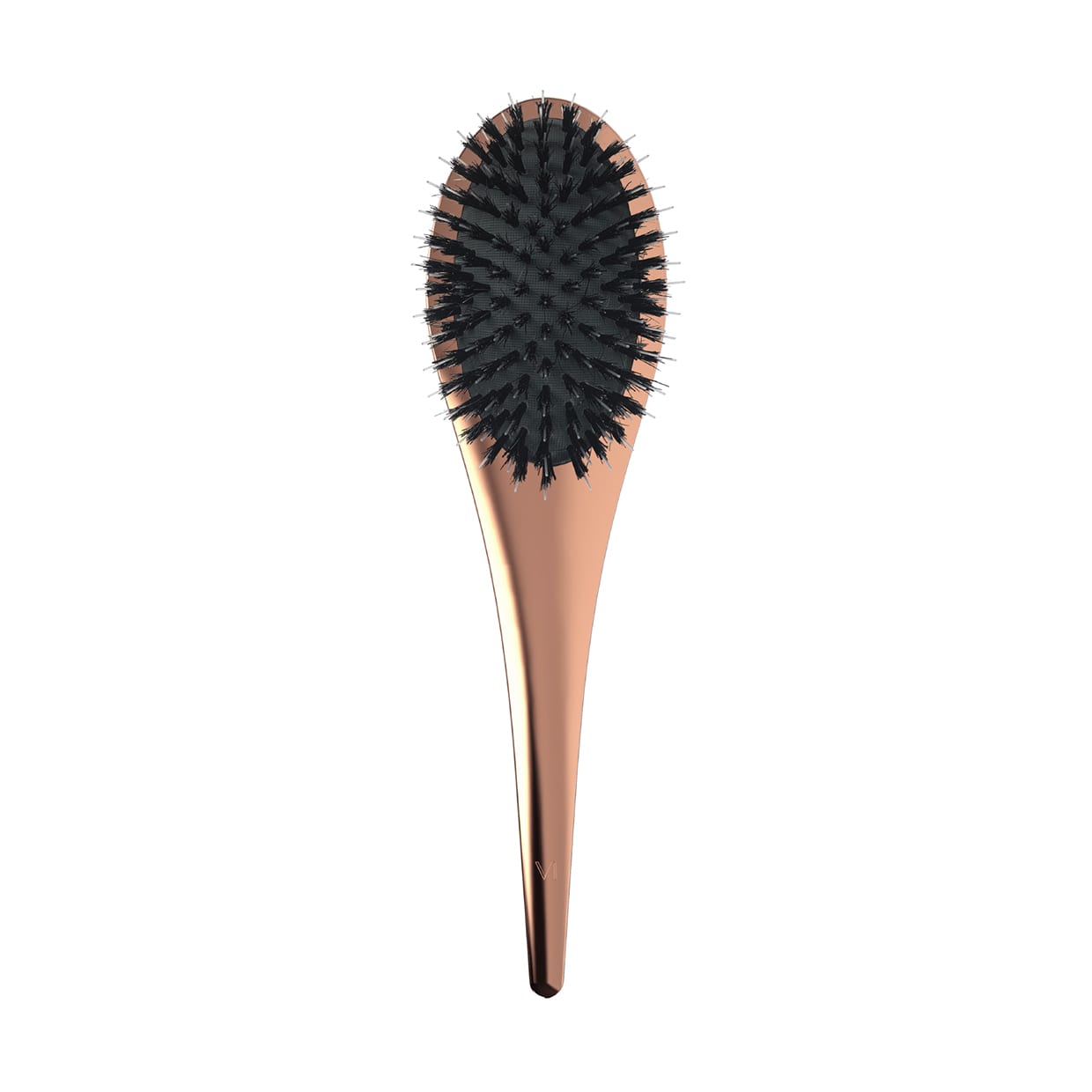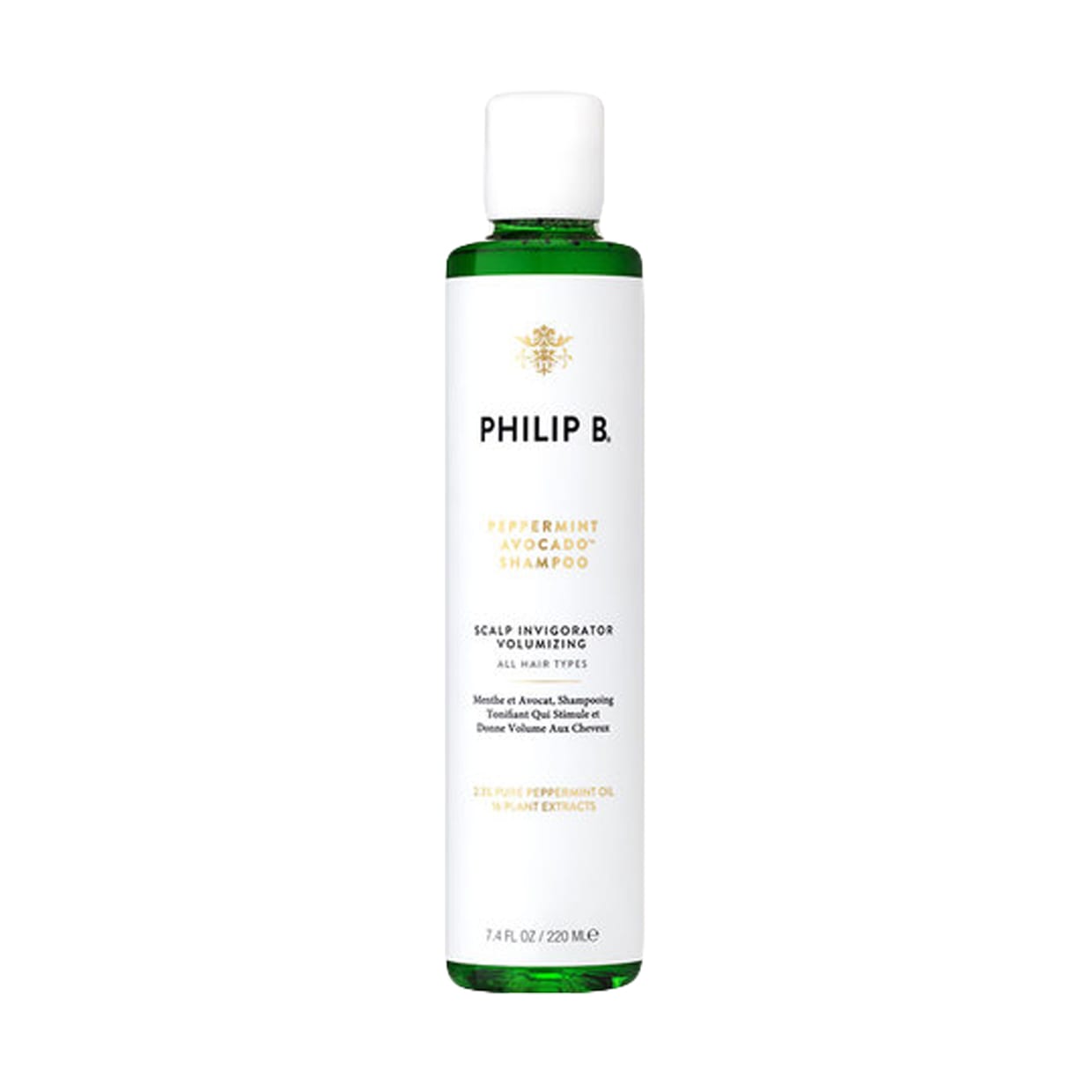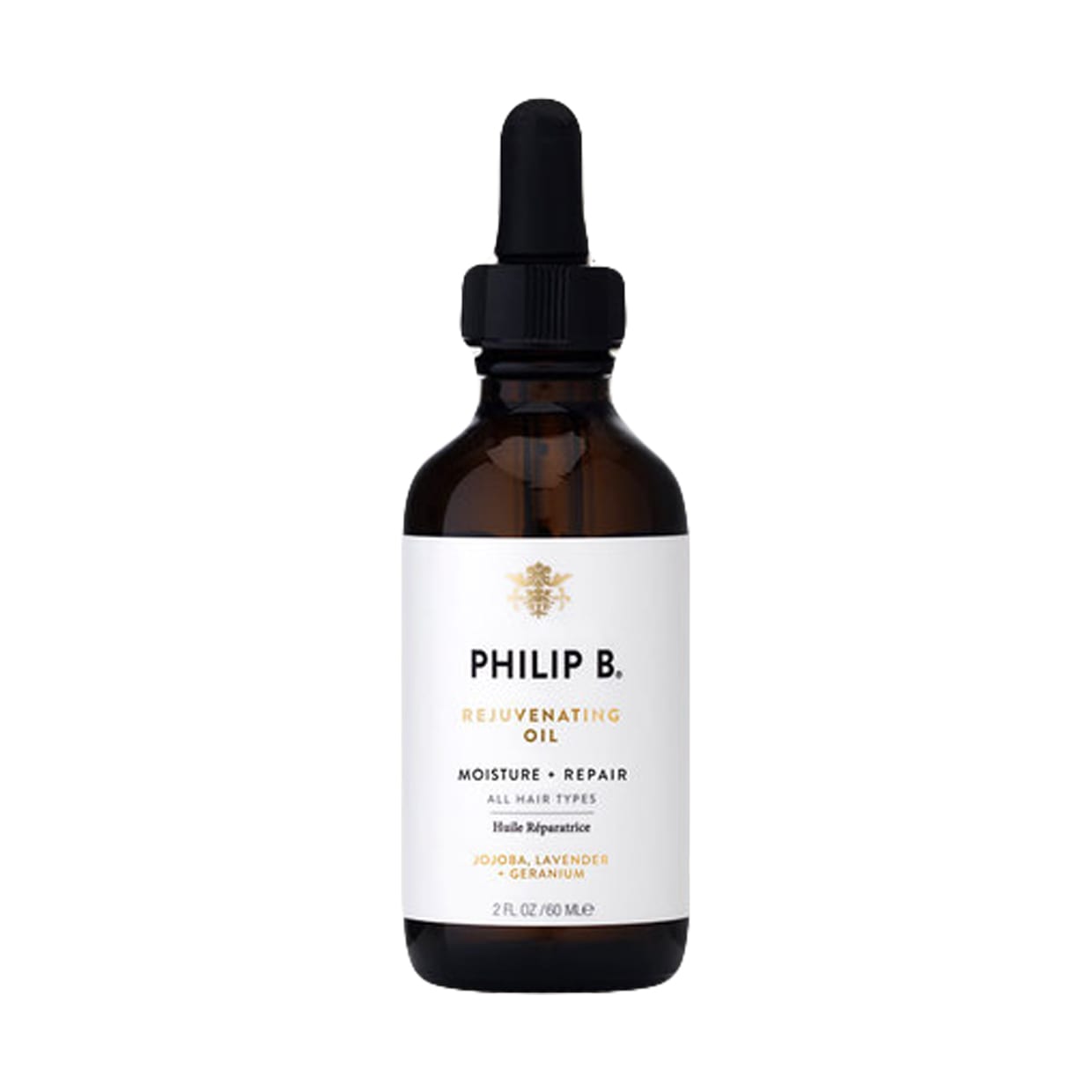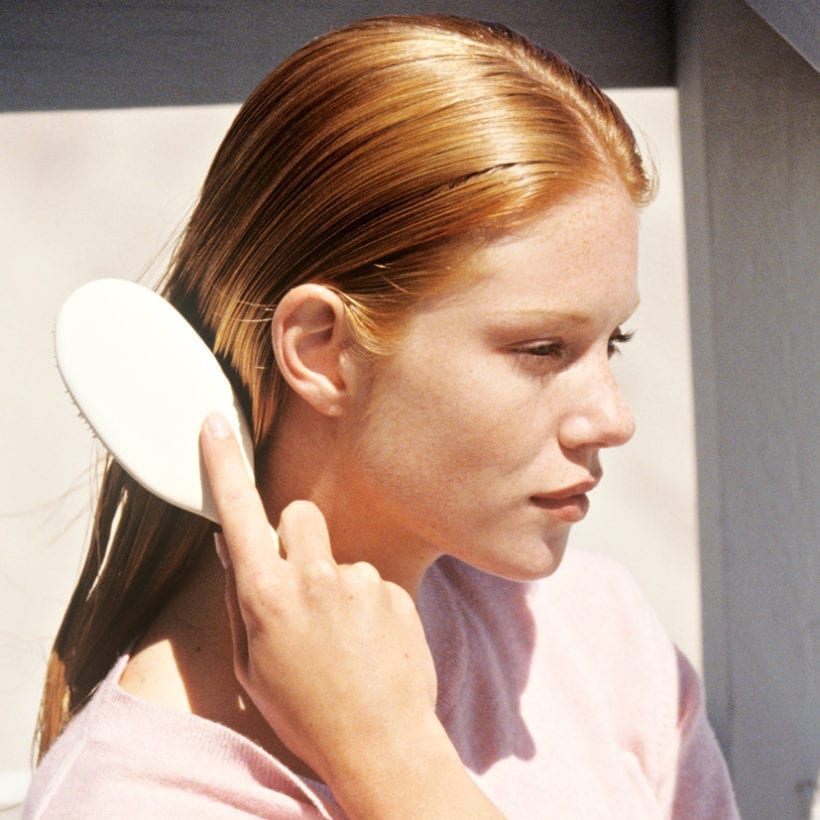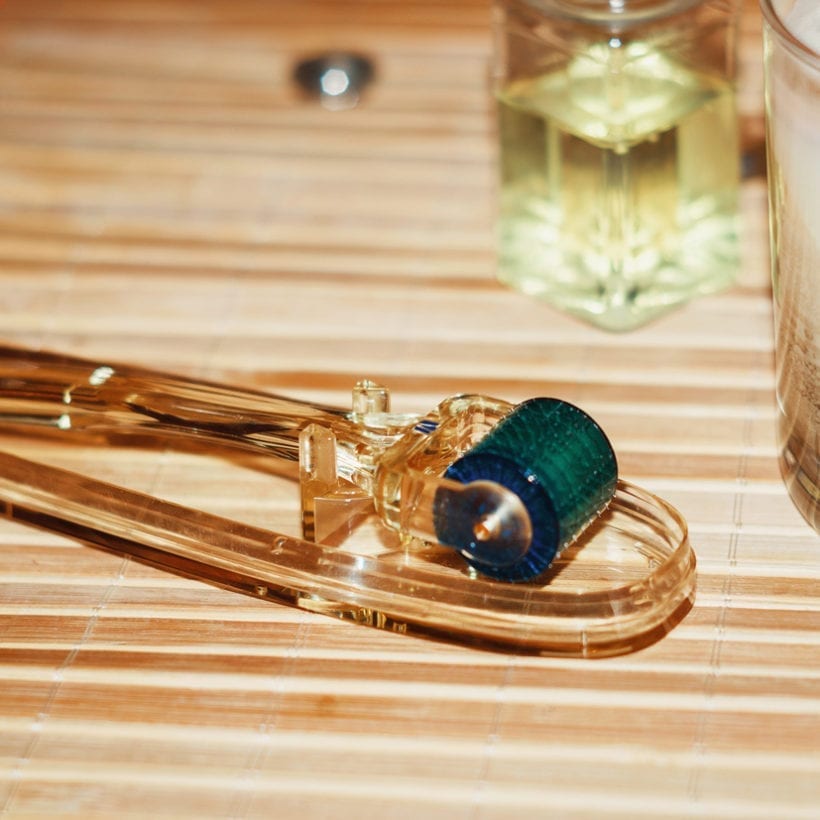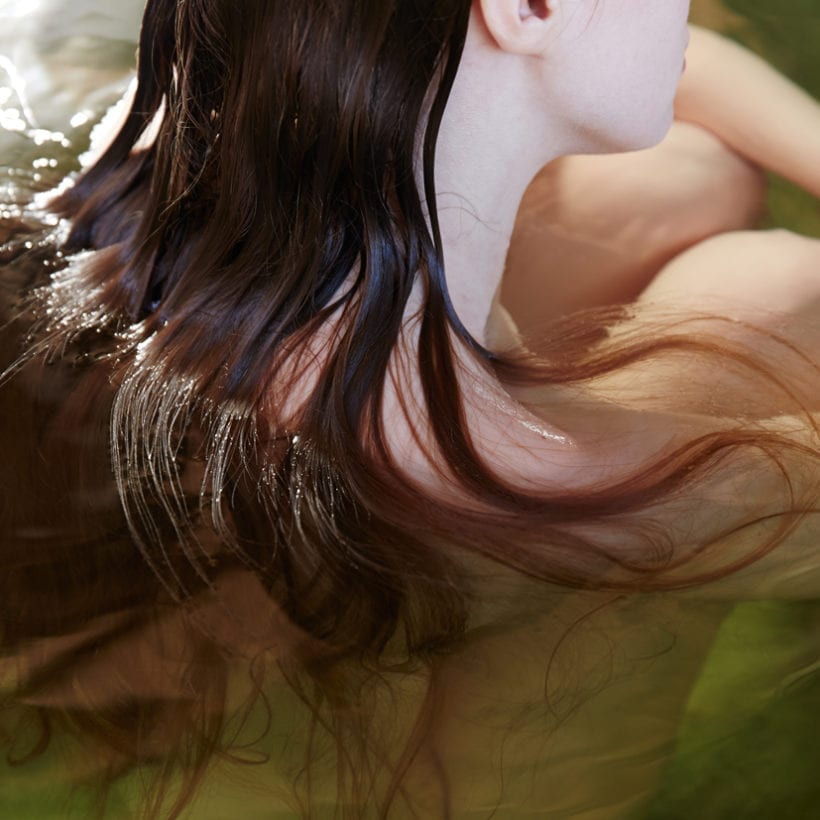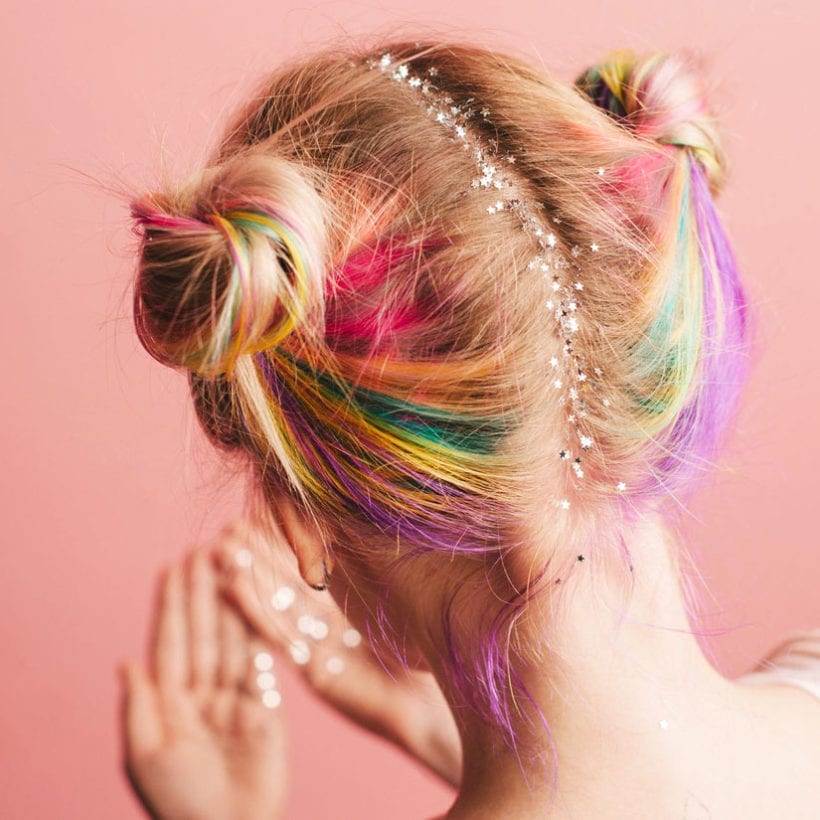Many of us are still working from home, making this the perfect opportunity to spend some time on ourselves. There are no coworkers around you to judge you as you click-clack away (in privacy) with a freshly applied face mask. But while many of us would consider ourselves to be skincare aficionados, we often forget about the scalp. “It has natural sebum and product build-up that acts like a Venus flytrap,” says Ava Shamban M.D., a cosmetic dermatologist in Beverly Hills. It is the perfect breeding ground for dirt, debris, sludge and skin cells. Like the face, not cleansing or exfoliating the scalp can lead to a host of problems. And we know that a clean scalp leads to strong, healthy and shiny hair.
One way to protect yourself from a host of scalp conditions is to incorporate acids into your scalp care routine. Since the same proteins that make up your skin, also make up your scalp, “using similar products used in the face [like acids] can benefit the scalp in the same way it benefits your skin,” says Michele Green, M.D., a board-certified dermatologist in New York. Of course, “it depends on your hair type and the pH balance of your scalp,” she adds.
What Is the Scalp?
Your scalp is a living, breathing ecosystem that lives on top of your head. It contains nerve endings, blood vessels and millions upon millions of cells — all of which help to grow hair. Like the face, the scalp has pores, follicles and its own sebaceous system. “The highest number of sebaceous glands in our body exists in the face and scalp. These microscopic glands open into the hair follicle and secret a sebum [or oil] which helps to lubricate the skin and hair,” says Shamban. Because the scalp is much thicker and oilier than the skin on our face, it is a breeding ground for microbes. “The scalp is also the means by which the hair follicles get nourishment to maintain healthy-looking hair, promote hair growth and prevent hair loss,” adds Green.
Why Do I Need a Regular Scalp-Care Routine?
According to Shamban, the scalp “needs the same kind of attention and care to cleanse, balance, exfoliate and manage as the face.” Like the face, not cleansing or exfoliating the scalp can lead to a host of problems: clogged pores, excess debris, dead skin cells and blockages, product and sebum build-up, as well as environmental sludge and pollutants. Not to mention panic and stress play a role as well. The skin and the mind are highly connected — environment, hormones, and how we feel inside emotionally impacts our skin. “Anxiety, panic and stress are survival mechanisms, much like the flight or fight theory which all contribute to autoimmune reactivity in the body and the release of stress hormones including cortisol which induce sebum production,” says Shamban. This excess sebum production also affects our scalp. “Now, because of the pandemic, we are seeing increases in general irritation, redness, inflammation associated with atopic dermatitis, psoriasis and eczema,” Shamban notes. “For those who already suffered from eczema, psoriasis, rosacea, acne, even OCD conditions such as trichotillomania, the high anxiety of uncertainty and feeling out of control will undoubtedly cause heightened skin flare-ups,” Shamban adds.
Like the face, not cleansing or exfoliating the scalp can lead to a host of problems.
On top of that, scalp buildup can also contribute to thinning hair or hair loss. “If you don’t clean your scalp, it can start to smell, [and] you can get folliculitis, which can lead to hair loss,” notes Philip Berkovitz, celebrity hair expert and founder of Phillip B. Botanicals. “A once-a-week deep clean is just part of good hygiene.”
Benefits of Acids
We all know acids exfoliate our skin and aid in removing pore-clogging dead skin cells, which is why they are also beneficial to exfoliate your scalp, where it may be harder to cleanse the skin. When shopping for a scalp serum, look out for AHAs like glycolic acid and lactic acid. “[AHAs] will help promote cellular turnover and exfoliation, removing the sebum and dead skin cells as well as increasing the oxygenation and [micro] circulation to the area,” says Shamban.
Glycolic Acid
“Glycolic acid can reduce build-up deep into the pore and on the walls of the follicle. The lower the pH, the higher-powered the ‘peeling’ and cellular turnover experience.” This means that the use of AHAs on your scalp will leave it deeply cleansed without completely drying it out or stripping your hair of moisture, causing an excess production of sebum.
Salicylic Acid
Let’s not forget about the impact our friends, BHAs, can have on our scalp’s health too. BHAs, like salicylic acid, “can help shed the dead skin cells on the scalp, especially important in conditions where the scalp cannot shed on its own such as scalp psoriasis,” adds Estee Williams, M.D., a board-certified dermatologist in New York. “Because salicylic acid can naturally help strip away the outer layer of the epidermis, it is a highly effective ingredient for penetrating the scalp and cleansing the area,” says Shamban. Effectively “eliminating much of the excess cells that can contribute to irritation, dandruff or its more serious cousin seborrheic dermatitis,” she adds.
Side Effects of Acids
Still wary of using acids on your scalp? Shamban says there are usually no side effects that come from using AHAs and BHAs on the scalp as they “have the ability to eat away the dead skin with moisturizing factors to help keep the area nourished and hydrated.” The scalp also tends to be less sensitive than the rest of the skin on the body. However, sensitivity can differ from person to person. If you are nervous about introducing a new product to your scalp care regimen, you can always schedule an appointment with your dermatologist.
The Best Products for the Scalp
Sunday Riley Clean Rinse
“Salicylic acid helps to eliminate and wash away the excess waxy buildup of sebum on the scalp surface, which helps to keep balance and ensures that the scalp is healthy, eliminating the formation of acne. Glycolic acid has high moisture-binding properties, so it helps to keep the balance needed once it is in the pore and triggers healing,” says Shamban.
Vuja De V1 Smooth
“It is old school, but properly brushing hair is also great for exfoliating. A hundred strokes a night with a natural bristle brush pressing firmly but gently massaging in straight and circular motions,” notes Shamban.
Philip B. Peppermint and Avocado Shampoo
“Peppermint oil is an antiseptic, regenerative and highly stimulating. It helps to relieve dry scalp and irritation along with maintaining the pH of the scalp while it is invigorating and moisturizing,” says Shamban.
Philip B. Rejuvenating Oil
“Leave it on your hair for 20 minutes and use a blow-dryer to warm the oil, thinning it out so it can absorb into the hair fiber for optimal conditioning,” adds Berkovitz.
We only recommend products we have independently researched, tested, and loved. If you purchase a product found through our links, Sunday Edit may earn an affiliate commission.
